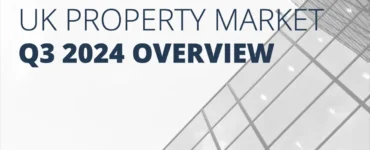
Perhaps the best news for High Net Worth Individuals (HNWIs) in the Budget announced by the UK Chancellor (Finance Minister), George Osborne, on 16 March 2016, is that it contains nothing which will cause them to start considering whether they should leave the UK or realign their investments.
The one possible exception to the latter point could be that anyone with significant investments in companies which make soft drinks may want to re-think their position after the surprising and headline-grabbing announcement that there will be a new tax on drinks which contain large amounts of sugar. Already being talked about as “the sugar tax”, this measure – which is aimed at tackling obesity in young people in particular – will see the price of carbonated drinks such as Coca-Cola rise by as much as 80%, which is bound to have a knock-on effect for shareholders.
This unexpected move aside, HNWIs will have expected the parts of the Budget which may have a direct effect on them. As of 1 April 2016, those purchasing property in the UK which is either considered to be a second home, or which they rent out, will be liable to a higher rate of stamp duty, the tax paid on property purchases.
This had been expected since last autumn (and discussed in this blog; see UK House Prices: Steady Climb Continues – For Now, posted on 8 February 2016). In each band, stamp duty will increase by three per cent, meaning that at the top end of the market, if your second home costs over £1.5m, the previous rate of 12% stamp duty will now be 15%.
There is a slight change from the original announcement, in that purchasers will not incur the additional charge if they replace a main residence which has previously been sold within 36 months (18 months was originally proposed). Likewise, if a purchaser who has paid the additional charge because they have not been able to sell their previous main residence in this time period then does so within 36 months, they will be able to claim a refund.
However, there will be no specific exemption for companies and funds which make significant investment in residential property as had originally been proposed in the consultation. The only relief of sorts will be the continued ability to apply the commercial rates (albeit as revised from 17 March 2016) where six or more dwellings are purchased in a single transaction.
The other major change affecting some HNWIs concerns non-UK domiciled individuals, but this measure was also expected. As first announced in the 2015 Budget, non-UK domiciled individuals will become “deemed UK domiciled” where they have been resident in the UK in more than 15 of the previous 20 tax years. Individuals will cease to be able to access the remittance basis of taxation when they become deemed UK domiciled.
This means that where individuals become deemed UK domiciled from April 2017, their non-UK assets will be rebased to their market value on 6 April 2017 (the start of the 2017-2018 tax year). So far it has not been announced whether this will apply automatically or whether individuals will need to make a declaration. It is important that individuals clarify this situation in the coming year, as the government has made it clear that it intends to deal harshly with those avoiding tax.
The government has also repeated its earlier intention that where an individual has created a non-UK resident trust before becoming deemed UK domiciled, they will not be subject to tax on non-UK income and gains retained within the trust.


